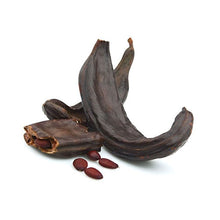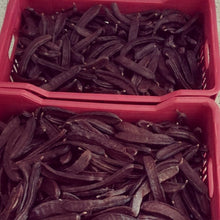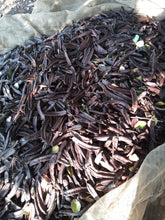1Kg Natural Untreated Carobs - Season 2024


Carob is "a forgotten fruit" and as such is difficult to find.
Carob pulp has a sweetish flavor that vaguely resembles chocolate. Unlike the latter, it is much less caloric and richer in fiber, vitamins (riboflavin) and minerals.
The absence of psychoactive substances, such as caffeine and theobromine, makes carob the ideal substitute for chocolate for those who suffer from allergies or hypersensitivity to these substances. The high fiber content makes it a particularly satiating food, capable of combining flavor and well-being.
When mixed with saturated fats such as those found in butter or tropical oils, carob flour creates a product that is even more similar in flavor and consistency to traditional chocolate.
| Average nutritional values per 100g | |
| Energy: | 865KJ - 207Kcal |
| Total fat: | 0.7g |
| of which saturated | 0.0g |
| Carbohydrates | 49.9g |
| of which sugars | 48.9g |
| Fibers | 23.1g |
| Protein % | 3.3 |
| Sodium | 0.0mg |
Property

Carobs, the fruit of the evergreen carob tree, are rich in fibre.
The active ingredients of carob are mainly present in the fleshy walls that separate the seeds from the pods. The pulp contains the nutritional ingredients as well as fiber, mineral salts, tannins and precious trace elements, such as calcium, zinc, potassium, iron, magnesium, phosphorus and silicon.
Carob is also a source of antioxidants, particularly flavonoids, and vitamins E and K.






